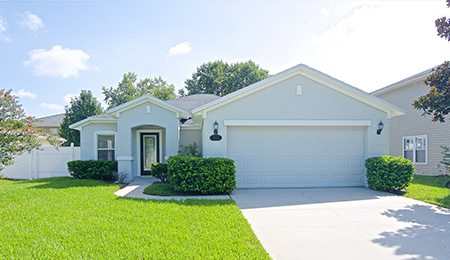Unsure how to secure your next investment? See how hard money loans enable investors to secure deals others may miss when they opt for slower bank financing.
If you’ve spent any time around real estate investing, you’ve probably heard the term “hard money loan.” But what exactly is it? Who uses it? And why?
Whether you’re an investor who needs fast funding for a deal — or you’re on the other side with capital you’d like to put to work — understanding how hard money works is key. Here’s everything you need to know:
What is a hard money loan? 💰 A hard money loan is a short-term, real estate-backed loan offered by a private lender instead of a bank. These loans are often used by real estate investors who are flipping houses, buying fixer-uppers or need fast capital for a project. These loans are secured by the property itself, which means the lender is focused more on the value of the deal than on your credit score or income documentation.
Here in Jacksonville, we see hard money loans used for:
• Fix-and-flip projects
• Rental property purchases
• Lot acquisitions or land development
• Bridge loans while waiting for long-term financing
The benefits of hard money loans. 💸 Many borrowers are turning to hard money loans because of three key advantages: fast closings, flexible underwriting, and competitive loan returns. These features make hard money lending an attractive option in today’s real estate environment.
1. Fast closings. ⚡ Traditional banks can take 30 to 45 days to close a loan. That delay can cost investors the deal altogether. However, hard money loans can close in just a few days.
2. Flexible underwriting. 🔀 These loans are based on the property, not the borrower’s financial background. This allows lenders to fund deals that banks would reject, including unique or distressed properties.
3. Opportunity. 💡 If you find a great deal and need to move fast, a hard money loan lets you strike while the iron’s hot.
If the numbers work and you’ve got a solid exit plan, like selling the property or refinancing, it can be a smart move despite the higher cost.
“Hard money loans offer quick closings that banks can't match.”
What do hard money loans cost? 🏷️ Hard money loans carry higher rates and fees than traditional loans. Typical terms might include:
• Interest rates between 8%–14% (sometimes more)
• Origination fees (a.k.a. “points”) around 1–4%
• Short terms that are usually within 6 to 18 months
• Interest-only payments with a balloon payment at the end
It is important to note that lenders charge more for these loans because they’re short-term and involve higher risks. However, it’s a worthwhile trade-off for the right investor and the right deal.
What do lenders look for? 🔍Hard money lenders care about:
• The value of the property (either current or after rehab)
• The amount you’re putting in (down payment or equity)
• Your exit strategy (sale, refinance, etc.)
• Your experience level with similar deals
Some lenders will also look at your credit history, but it’s usually a secondary factor.
What about the other side — becoming a lender? If you’re sitting on capital and seeking higher returns than what the stock market or savings accounts offer, hard money lending could be a viable option. Many investors choose to lend money on real estate deals for several reasons:
1. Attractive returns. Private lenders typically earn returns ranging from 8% to 14% annually.
2. Real estate backing. Loans are secured by the property itself, offering a layer of security.
3. Short-term commitment. Most hard money loans are for less than a year, providing flexibility.
The risks of hard money loans. Both borrowers and lenders should be mindful of the risks involved in hard money lending. Borrowers face higher interest rates, fees, and short repayment periods, with the added risk of losing the property if they default.
Lenders also encounter risks, such as having funds tied up during foreclosure if the borrower defaults. Additionally, property values may not meet expectations, and investments are less liquid than stocks or bonds, making them harder to access when needed. The bottom line is that hard money lending is a tool, not a silver bullet. Use it wisely and it can create real opportunities.
Hard money loans in Jacksonville. Hard money loans are commonly used in Jacksonville for fix-and-flip projects, rental property acquisitions, lot purchases or land development, and bridge loans while waiting for long-term financing.
These loans have proven valuable in various scenarios. First-time investors use them to secure their first flip, while builders acquire infill lots for new construction. Out-of-state investors also benefit from quick transactions to avoid bank delays when securing rental properties.
In areas like Springfield, Arlington, the Beaches, and Nassau County, speed and flexibility often help close deals. This is where hard money loans stand out, offering an advantage in competitive markets. If you have questions or need guidance, please reach out. You can call me at 904-405-1995 or send an email to Jeff@PursuitRealEstate.com. I look forward to hearing from you.



